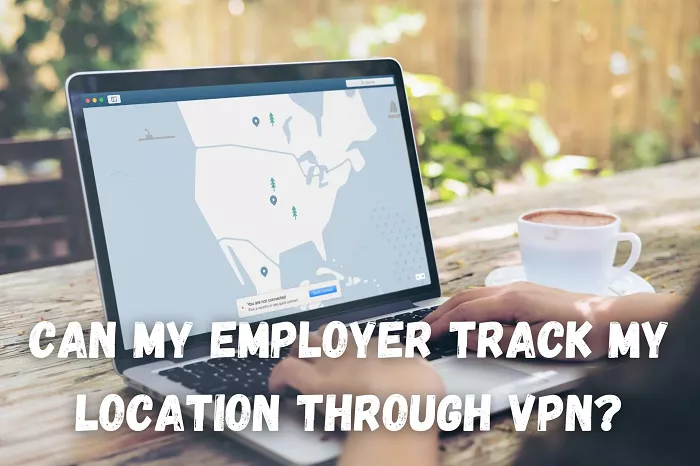In today’s digital age, Virtual Private Networks (VPNs) have become essential tools for enhancing online privacy and security. They encrypt internet traffic, masking users’ IP addresses and making their online activities more difficult to trace. However, many individuals wonder: Can employers track VPN usage? Understanding this concern is crucial, especially for remote workers and those using VPNs on company devices.
What is VPNs and Their Purpose
A VPN is a service that establishes a secure, encrypted connection between a user’s device and a VPN server. This connection routes the user’s internet traffic through the server, effectively masking their real IP address and encrypting data transmissions. The primary purposes of using a VPN include:
- Privacy Protection: Concealing browsing activities from third parties, including Internet Service Providers (ISPs) and potential hackers.
- Security Enhancement: Safeguarding data, especially when using public Wi-Fi networks.
- Accessing Restricted Content: Bypassing geo-restrictions to access content available in specific regions.
Employer Monitoring Capabilities
Employers implement various monitoring techniques to oversee employee activities, ensuring productivity and protecting company assets. The extent of monitoring can vary based on company policies, the tools employed, and the nature of the work. Key monitoring methods include:
- Network Traffic Analysis: Employers can monitor data flowing through their networks, identifying websites visited, data volumes, and connection times.
- Device Monitoring Software: Specialized software can track application usage, keystrokes, and even take periodic screenshots of employee devices.
- IP Address Tracking: Recording the IP addresses that devices connect to, which can reveal the geographical location of the connection.
Impact of VPN Usage on Employer Monitoring
While VPNs offer enhanced privacy, they do not render users completely invisible to employer monitoring systems. Employers can still detect and analyze VPN usage through several methods:
Detection of VPN Connections
Employers can identify VPN traffic patterns, which often differ from regular internet traffic. Indicators include:
- Unusual Data Encryption: Encrypted traffic that doesn’t match standard protocols may raise flags.
- Known VPN Server IPs: Connecting to IP addresses associated with VPN services can be detected through IP databases.
- Consistent Connection Times: Regular, prolonged connections to the same external IP address can be indicative of VPN usage.
Geolocation Discrepancies
VPNs can make it appear as though a user is accessing the internet from a different location. Employers might notice:
- Inconsistent Locations: Frequent changes in connection locations that don’t align with the employee’s known whereabouts.
- Access from Unusual Regions: Connections originating from countries or regions unrelated to the employee’s typical locations.
These discrepancies can prompt employers to investigate further, especially if the VPN usage violates company policies.
Monitoring Within Corporate Networks
If an employee connects to a corporate network via VPN, employers can monitor:
- Accessed Resources: Identifying which internal resources, applications, or files are accessed.
- Data Transferred: Monitoring the volume and type of data exchanged during the VPN session.
- Session Duration: Logging the start and end times of VPN connections to assess activity patterns.
This level of monitoring ensures that employees adhere to company protocols and that sensitive information remains secure.
Limitations of VPNs in Concealing Activities
While VPNs enhance privacy, they have limitations, especially in a corporate environment:
- Device-Level Monitoring: Employers can install monitoring software on company devices, capturing activities before data is encrypted by the VPN.
- Metadata Analysis: Even without accessing the content of communications, employers can analyze metadata (e.g., connection times, data volume) to infer activities.
- Policy Enforcement: Companies may have policies that restrict or monitor VPN usage to prevent unauthorized activities.
Best Practices for Employees Using VPNs
To navigate the complexities of VPN usage and employer monitoring, consider the following best practices:
- Review Company Policies: Understand your organization’s policies regarding VPN usage and internet activity monitoring.
- Use Company-Approved VPNs: If a VPN is necessary for work, use solutions approved or provided by your employer to ensure compliance.
- Limit Personal Use: Avoid using personal VPNs on company devices, as this can violate policies and may not effectively conceal activities.
- Be Transparent: If you need to use a VPN for legitimate reasons, discuss it with your IT department or supervisor to ensure alignment with company practices.
Legal and Ethical Considerations
Employers must balance monitoring with respect for employee privacy. In many jurisdictions, there are legal guidelines governing workplace surveillance:
- Consent: Employees may need to be informed about monitoring practices and, in some cases, provide consent.
- Purpose Limitation: Monitoring should be conducted for legitimate business purposes, such as ensuring network security and productivity.
- Data Protection: Collected data should be stored securely and used responsibly, adhering to data protection regulations.
It’s essential for both employers and employees to be aware of and adhere to local laws and regulations regarding workplace monitoring and privacy.
Conclusion
While VPNs are effective tools for enhancing online privacy, they do not guarantee complete anonymity, especially within a corporate network. Employers have various means to detect and monitor VPN usage, primarily to protect company resources and ensure compliance with organizational policies.

